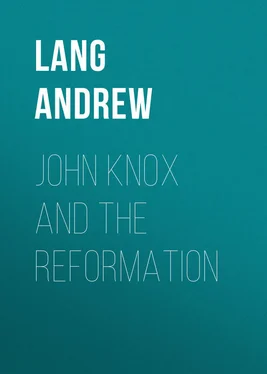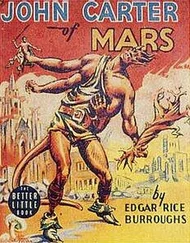Andrew Lang - John Knox and the Reformation
Здесь есть возможность читать онлайн «Andrew Lang - John Knox and the Reformation» — ознакомительный отрывок электронной книги совершенно бесплатно, а после прочтения отрывка купить полную версию. В некоторых случаях можно слушать аудио, скачать через торрент в формате fb2 и присутствует краткое содержание. Жанр: foreign_antique, foreign_prose, на английском языке. Описание произведения, (предисловие) а так же отзывы посетителей доступны на портале библиотеки ЛибКат.
- Название:John Knox and the Reformation
- Автор:
- Жанр:
- Год:неизвестен
- ISBN:нет данных
- Рейтинг книги:4 / 5. Голосов: 1
-
Избранное:Добавить в избранное
- Отзывы:
-
Ваша оценка:
- 80
- 1
- 2
- 3
- 4
- 5
John Knox and the Reformation: краткое содержание, описание и аннотация
Предлагаем к чтению аннотацию, описание, краткое содержание или предисловие (зависит от того, что написал сам автор книги «John Knox and the Reformation»). Если вы не нашли необходимую информацию о книге — напишите в комментариях, мы постараемся отыскать её.
John Knox and the Reformation — читать онлайн ознакомительный отрывок
Ниже представлен текст книги, разбитый по страницам. Система сохранения места последней прочитанной страницы, позволяет с удобством читать онлайн бесплатно книгу «John Knox and the Reformation», без необходимости каждый раз заново искать на чём Вы остановились. Поставьте закладку, и сможете в любой момент перейти на страницу, на которой закончили чтение.
Интервал:
Закладка:
This success was providential. They next invited English exiles abroad to join them at Frankfort, saying nothing about their mutilations of the service book. If these brethren came in, when they were all restored to England, if ever they were restored, their example, that of sufferers, would carry the day, and their service would for ever be that of the Anglican Church. The other exiled brethren, on receiving this invitation, had enough of the wisdom of the serpent to ask, “Are we to be allowed to use our own prayer book?” The answer of the godly of Frankfort evaded the question. At last the Frankfort Puritans showed their hand: they disapproved of various things in the Prayer Book. Knox, summoned from Geneva, a reluctant visitor, was already one of their preachers. In November 1554 came Grindal, later Archbishop of Canterbury, from Zurich, ready to omit some ceremonies, so that he and his faction might have “the substance” of the Prayer Book. Negotiations went on, and it was proposed by the Puritans to use the Geneva service. But Knox declined to do that, without the knowledge of the non-Puritan exiles at Zurich and elsewhere, or to use the English book, and offered his resignation. Nothing could be more fair and above-board.
There was an inchoate plan for a new Order. That failed; and Knox, with others, consulted Calvin, giving him a sketch of the nature of the English service. They drew his attention to the surplice; the Litany, “devised by Pope Gregory,” whereby “we use a certain conjuring of God”; the kneeling at the Communion; the use of the cross in baptism, and of the ring in marriage, clearly a thing of human, if not of diabolical invention, and the “imposition of hands” in confirmation. The churching of women, they said, is both Pagan and Jewish. “Other things not so much shame itself as a certain kind of pity compelleth us to keep close.”
“The tone of the letter throughout was expressly calculated to prejudice Calvin on the point submitted to him,” says Professor Hume Brown. 57 57 John Knox , i. 174, 175; Corp. Ref ., xliii. 337-344.
Calvin replied that the quarrel might be all very well if the exiles were happy and at ease in their circumstances, though in the Liturgy, as described, there were “tolerable (endurable) follies.” On the whole he sided with the Knoxian party. The English Liturgy is not pure enough; and the English exiles, not at Frankfort, merely like it because they are accustomed to it. Some are partial to “popish dregs.”
To the extreme Reformers no break with the past could be too abrupt and precipitous: the framers of the English Liturgy had rather adopted the principle of evolution than of development by catastrophe, and had wedded what was noblest in old Latin forms and prayers to music of the choicest English speech. To this service, for which their fellow-religionists in England were dying at the stake, the non-Frankfortian exiles were attached. They were Englishmen; their service, they said, should bear “an English face”: so Knox avers, who could as yet have no patriotic love of any religious form as exclusively and essentially Scottish.
A kind of truce was now proclaimed, to last till May 1, 1555; Knox aiding in the confection of a service without responses, “some part taken out of the English book, and other things put to,” while Calvin, Bullinger, and three others were appointed as referees. The Frankfort congregation had now a brief interval of provisional peace, till, on March 13, 1555, Richard Cox, with a band of English refugees, arrived. He had been tutor to Edward VI., the young Marcellus of Protestantism, but for Frankfort he was not puritanic enough. His company would give a large majority to the anti-Knoxian congregation. He and his at once uttered the responses, and on Sunday one of them read the Litany. This was an unruly infraction of the provisional agreement. Cox and his party (April 5) represented to Calvin that they had given up surplices, crosses, and other things, “not as impure and papistical,” but as indifferent, and for the sake of peace. This was after they had driven Knox from the place, as they presently did; in the beginning it was distinctly their duty to give up the Litany and responses, while the truce lasted, that is, till the end of April. In the afternoon of the Sunday Knox preached, denouncing the morning’s proceedings, the “impurity” of the Prayer Book, of which “I once had a good opinion,” and the absence, in England, of “discipline,” that is, interference by preachers with private life. Pluralities also he denounced, and some of the exiles had been pluralists.
For all this Knox was “very sharply reproved,” as soon as he left the pulpit. Two days later, at a meeting, he insisted that Cox’s people should have a vote in the congregation, thus making the anti-puritans a majority; Knox’s conduct was here certainly chivalrous: “I fear not your judgment,” he said. He had never wished to go to Frankfort; in going he merely obeyed Calvin, and probably he had no great desire to stay. He was forbidden to preach by Cox and his majority; and a later conference with Cox led to no compromise. It seems probable that Cox and the anti-puritans already cherished a grudge against Knox for his tract, the “Admonition.” He had a warning that they would use the pamphlet against him, and he avers that “some devised how to have me cast into prison.” The anti-puritans, admitting in a letter to Calvin that they brought the “Admonition” before the magistrates of Frankfort as “a book which would supply their enemies with just ground for overturning the whole Church, and one which had added much oil to the flame of persecution in England,” deny that they desired more than that Knox might be ordered to quit the place. The passages selected as treasonable in the “Admonition” do not include the prayer for a Jehu. They were enough, however, to secure the dismissal of Knox from Frankfort.
Cox had accepted the Order used by the French Protestant congregation, probably because it committed him and his party to nothing in England; however, Knox had no sooner departed than the anti-puritans obtained leave to use, without surplice, cross, and some other matters, the Second Prayer Book of Edward VI. In September the Puritans seceded, the anti-puritans remained, squabbling with the Lutherans and among themselves.
In the whole affair Knox acted the most open and manly part; in his “History” he declines to name the opponents who avenged themselves, in a manner so dubious, on his “Admonition.” If they believed their own account of the mischief that it wrought in England, their denunciation of him to magistrates, who were not likely to do more than dismiss him, is the less inexcusable. They did not try to betray him to a body like the Inquisition, as Calvin did in the case of Servetus. But their conduct was most unworthy and unchivalrous. 58 58 For the Frankfort affair, see Laing’s Knox , iv. 1-40, with Knox’s own narrative, 41-49; the letters to and from Calvin, 51-68. Calvin, in his letter to the Puritans at Frankfort, writes: “In the Anglican Liturgy, as you describe it , I see many trifles that may be put up with,” Prof. Hume Brown’s rendering of tolerabiles ineptias . The author of the “Troubles at Frankfort” (1575) leaves out “as you describe it,” and renders “In the Liturgie of Englande I see that there were manye tollerable foolishe thinges.” But Calvin, though he boasts him “easy and flexible in mediis rebus , such as external rites,” is decidedly in favour of the Puritans.
CHAPTER VII: KNOX IN SCOTLAND: LETHINGTON: MARY OF GUISE: 1555-1556
Meanwhile the Reformer returned to Geneva (April 1555), where Calvin was now supreme. From Geneva, “the den of mine own ease, the rest of quiet study,” Knox was dragged, “maist contrarious to mine own judgement,” by a summons from Mrs. Bowes. He did not like leaving his “den” to rejoin his betrothed; the lover was not so fervent as the evangelist was cautious. Knox had at that time probably little correspondence with Scotland. He knew that there was no refuge for him in England under Mary Tudor, “who nowise may abide the presence of God’s prophets.”
Читать дальшеИнтервал:
Закладка:
Похожие книги на «John Knox and the Reformation»
Представляем Вашему вниманию похожие книги на «John Knox and the Reformation» списком для выбора. Мы отобрали схожую по названию и смыслу литературу в надежде предоставить читателям больше вариантов отыскать новые, интересные, ещё непрочитанные произведения.
Обсуждение, отзывы о книге «John Knox and the Reformation» и просто собственные мнения читателей. Оставьте ваши комментарии, напишите, что Вы думаете о произведении, его смысле или главных героях. Укажите что конкретно понравилось, а что нет, и почему Вы так считаете.











